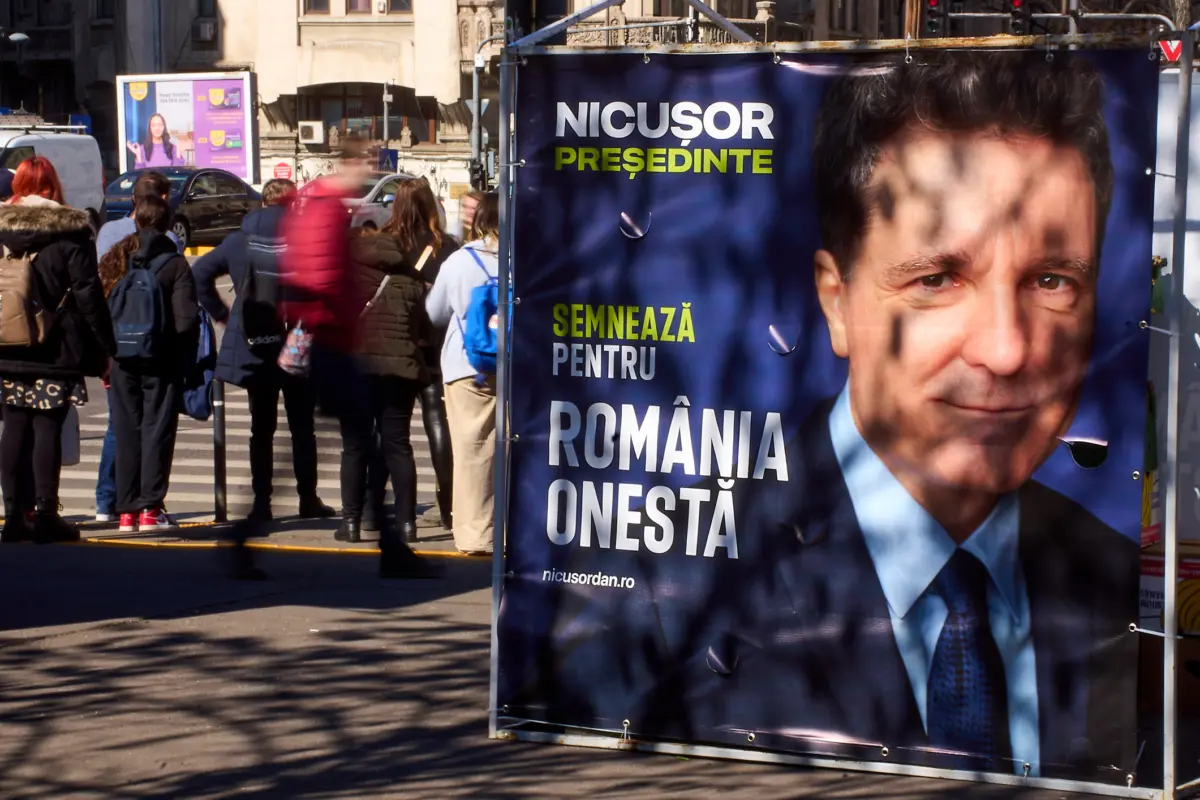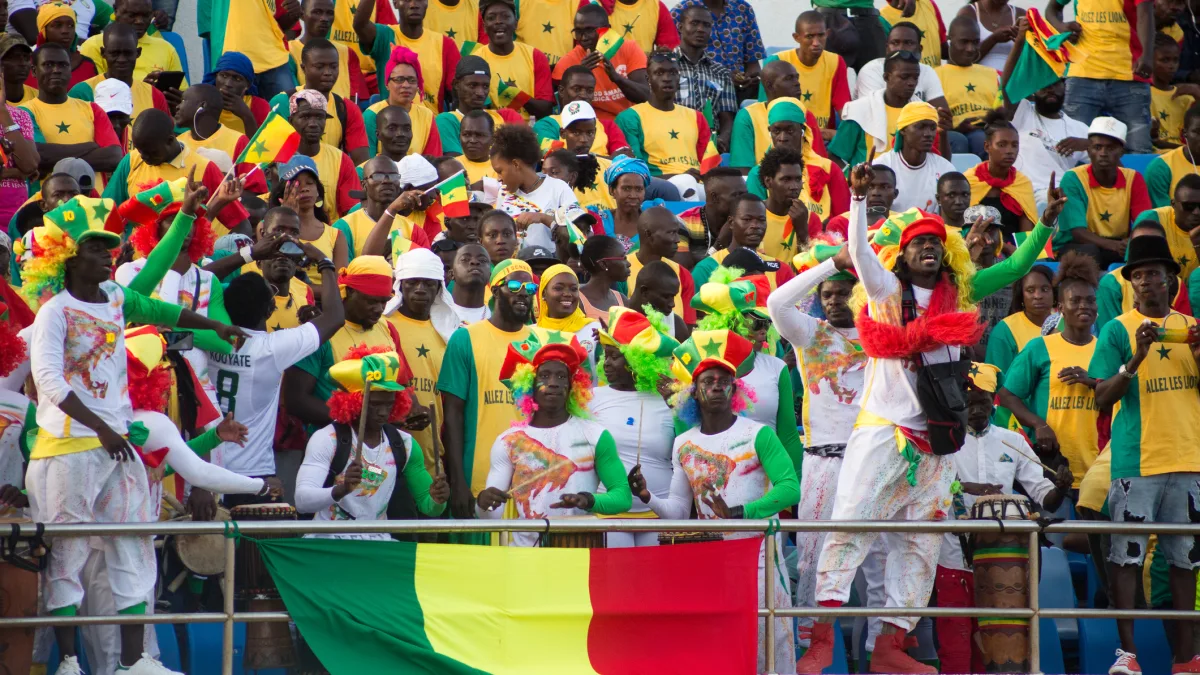For six months, Romania has lived in a state of suspended animation. The shock victory of an unknown ultranationalist, Călin Georgescu, in the first round of a presidential election in November triggered a constitutional crisis.
The country’s highest court annulled the election, cancelling the second round, citing Russian interference. Now, as the second attempt to elect a new president reaches its conclusion, Romanians face a choice that could alter the fate of their country—and the stability of NATO’s eastern frontier.
On May 18, voters must decide between Georgescu’s anointed heir, George Simion, a 38-year-old firebrand who leads the far-right Alliance for the Union of Romanians (AUR), and Nicușor Dan, the cerebral, 55-year-old pro-European mayor of Bucharest.
Simion’s commanding 41 per cent in the first round—considerably higher than opinion and exit polls predicted—makes him the clear favourite. Dan, who secured 21 per cent as an independent, faces an uphill battle to close the gap.
The stakes could hardly be higher. Romania risks turning its back on a comfortable role as a reliable Western ally amidst a populist revolt against the liberal order. A Simion victory would not merely represent a political shift; it would trigger an economic earthquake and a strategic realignment that could seriously hamper Ukraine’s war effort.
Start with the economics. Simion’s programme is a cocktail of populist promises and nationalist rhetoric. He pledges to ‘take back control’ from Brussels, negotiate Romania’s EU budget contributions, and prioritise ‘Romania first’ policies.
His advisors speak openly of following the ‘Hungarian model’ of ‘illiberal’ democracy. Foreign investors, already jittery after the electoral turmoil of November, could flee. The Romanian leu might plummet. Borrowing costs would soar as markets price in the risk of a sovereign debt crisis.
Unlike the gradual drift from liberal norms seen in Hungary and Poland, a Simion presidency would represent a dramatic rupture. Any chance of restoring economic growth, not long ago the highest in the EU, would evaporate.
The flow of European structural funds, worth 80 billion euros over seven years, would dry up as Brussels invokes its rule-of-law mechanism. Migration, which has already seen four million Romanians leave since EU accession in 2007, would accelerate. Domestic businesses, particularly in tech and manufacturing, would relocate to more stable jurisdictions.
The geopolitical implications
But the geopolitical implications dwarf the economic damage. Romania shares a 650-kilometre border with Ukraine—the longest among EU countries. Its Black Sea port at Constanța handles millions of tonnes of Ukrainian grain exports. The country hosts NATO’s largest land base on the alliance’s eastern flank and has welcomed over 100,000 Ukrainian refugees.
Simion has vowed to end Romania’s support for Ukraine. While stopping short of his disqualified predecessor’s outright praise for Vladimir Putin, he has called for ‘neutrality’ and described Ukraine’s territorial integrity as ‘negotiable’.
His vision for Romania includes recovering lost territories in Moldova and Ukraine, echoing the irredentism that destabilised Europe in the 1930s.
For Ukraine, the consequences would be immediate and severe. Romania provides the critical logistical backbone for Western military aid flowing through the Black Sea corridor. It serves as the primary alternative route for grain exports when Russia blockades Ukrainian ports. A Simion government would likely restrict both, potentially collapsing Ukraine’s agricultural economy and disrupting NATO’s supply lines.
The ripple effects would destabilise the entire region. Moldova, already struggling with separatist threats and energy crises, would lose its main EU ally. Hungary’s Viktor Orbán would gain a powerful partner in his campaign to reshape the EU from within. Putin would suddenly find his Black Sea strategy transformed, with a friendly power controlling the western coast.
A kick in the teeth for Romania’s political class
Yet the most troubling aspect may be Simion’s resonance with disaffected voters. His success reflects a profound alienation from Romania’s political class, which many blame for failing to close the development gap with Western Europe.
Despite EU membership bringing unprecedented prosperity, inequality remains stark. While Bucharest boasts gleaming shopping centres and tech hubs, much of rural Romania lacks basic infrastructure.
Simion taps into this resentment with populist flair. He denounces Romania’s leaders as ‘puppets of Brussels’, questions NATO’s military spending requirements, and rails against the ‘betrayal’ of traditional values.
His rallies feature calls for Romanian withdrawal from the EU’s migration quotas and threats to challenge Romania’s borders with Ukraine and Moldova.
Dan represents everything Simion opposes: technocratic governance, European integration, and civic activism. As Bucharest’s mayor, he has fought corruption, and modernised the city’s crumbling infrastructure. His Sorbonne PhD in mathematics symbolises his faith in evidence-based policy-making—a stark contrast to Simion’s emotional nationalism.
No time for apathy
But rationality may not be enough. Simion has masterfully exploited social media to bypass traditional gatekeepers. His TikTok videos, mixing nationalist symbolism with folksy charm, reach millions of Romanians. He has tapped into the same anti-elite sentiment that propelled Trump to victory and Brexit to success.
The campaign’s final two weeks will determine whether Romania’s democratic institutions—and NATO’s eastern frontier—can withstand this populist assault. Dan must persuade the 50 per cent of eligible voters who stayed home in the first round that their apathy could cost their country its European future. He needs to articulate a compelling vision of reform that addresses legitimate grievances without abandoning liberal democracy.
For Europe, Romania’s choice represents a crucial test. After weathering populist challenges in France, Germany, and the Netherlands, the EU cannot afford to lose another frontier state. Romania’s strategic position—guarding the alliance’s Black Sea flank, hosting critical infrastructure, and serving as Ukraine’s lifeline—makes its orientation existential for the West’s post-Cold War order.
As Romanians prepare to cast their ballots, they face a question that extends far beyond their borders: whether the benefits of liberal democracy and European integration outweigh the seductive simplicity of nationalist isolationism.
Their answer will shape not just their country’s trajectory, but the future of European security in an increasingly turbulent world. The road they choose will be Romania’s alone—but its consequences will reverberate from Bucharest to Brussels, from Kyiv to the corridors of the Kremlin.
Photo: Dreamstime.







